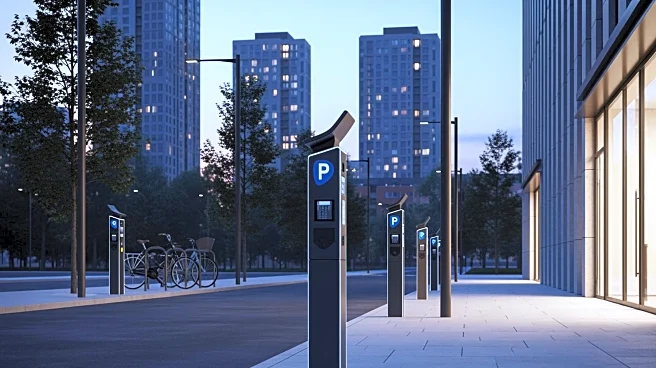What's Happening?
A proposed policy in Jersey mandating that every new home include a parking space has sparked significant debate. Critics argue that this requirement could increase housing costs, add traffic to the town
center, and undermine efforts to promote sustainable transport. Harry Trower, director of Broadlands Estate Agents, described the policy as 'counterproductive,' noting that many existing apartments already have parking. Supporters, such as Constable Simon Crowcroft, argue that town residents need parking for themselves, visitors, and essential care services. The policy has also been criticized by Nick Perchard-Rees, CEO of electric vehicle hire firm EVie, who believes it penalizes residents who choose not to own a car and detracts from sustainable transport initiatives.
Why It's Important?
The controversy surrounding Jersey's new housing policy highlights the broader challenges of balancing urban development with sustainability goals. The requirement for parking spaces could drive up housing costs, making it more difficult for first-time buyers to enter the market. This is particularly concerning in a context where affordability is already a significant issue. Additionally, the policy could lead to increased traffic and pollution, counteracting efforts to promote public transport and reduce car dependency. The debate underscores the tension between providing practical amenities for residents and advancing environmental sustainability.
What's Next?
As Jersey continues to deliberate on this policy, stakeholders will need to consider alternative solutions that address both the need for parking and the goal of sustainable urban development. Potential next steps could include exploring incentives for using public transport or shared mobility options, as well as revisiting the balance between parking provisions and housing affordability. The outcome of this debate could influence future urban planning decisions and set a precedent for how similar issues are addressed in other regions.
Beyond the Headlines
The policy debate in Jersey also raises questions about the role of government in shaping urban environments and the extent to which policies should prioritize individual convenience over collective sustainability goals. It highlights the ethical considerations of urban planning, where decisions can have long-term impacts on community well-being and environmental health.











